Concawe Reports
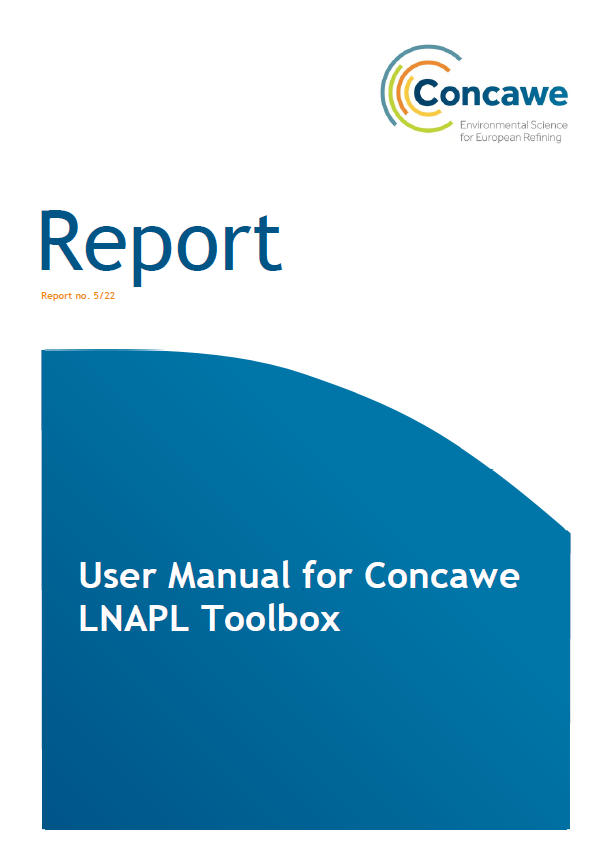
Reports
User Manual for Concawe LNAPL Toolbox
Report no. 5/22: LNAPL stands for “Light Non-Aqueous Phase Liquids” or hydrocarbons that exist as a separate undissolved phase in the subsurface at some sites with legacy releases of fuels. They a...
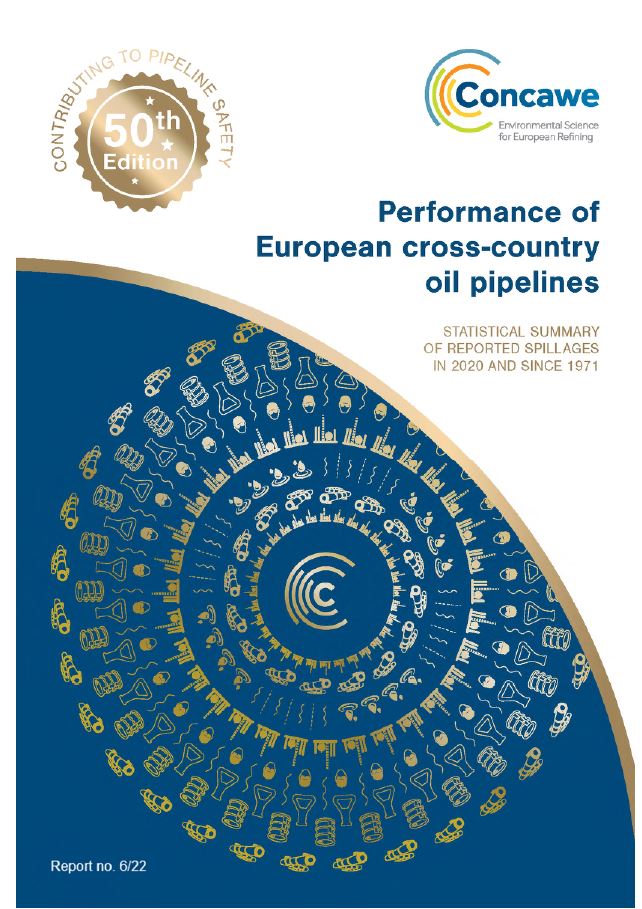
Reports
Performance of European cross-country oil pipelines – Statistical summary of reported spillages in 2020 and since 1971
Report no. 6/22: Concawe has collected 50 years of spillage data on European cross-country oil pipelines. At nearly 36,000 km the current inventory includes the majority of such pipelines in Europe, t...
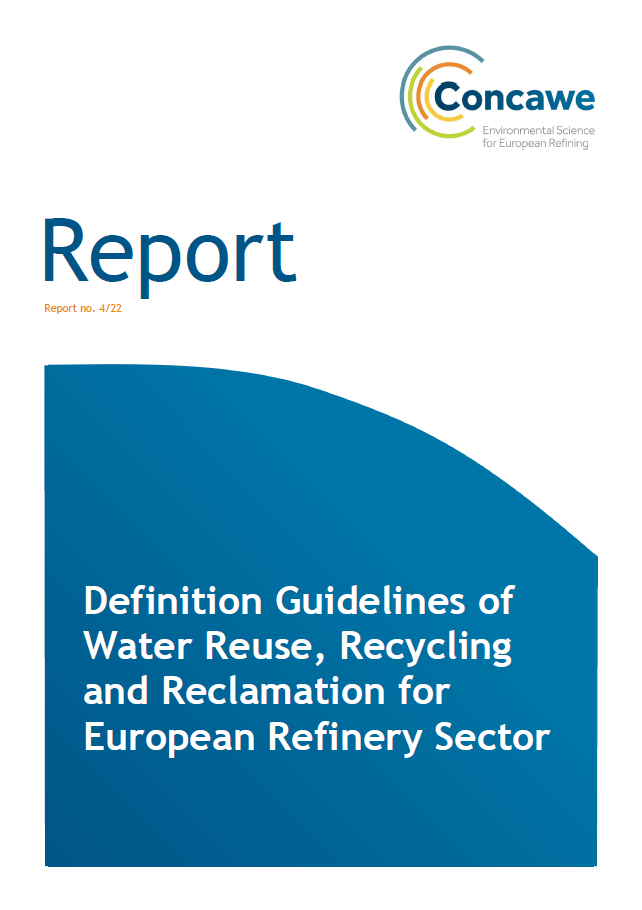
Reports
Definition Guidelines of Water Reuse, Recycling and Reclamation for European Refinery Sector
Report no. 4/22: The current Best Available Techniques (BAT) Reference document (BREF) for the mineral oil refining sector (REF BREF) contains requirements such as reducing water consumption by water...
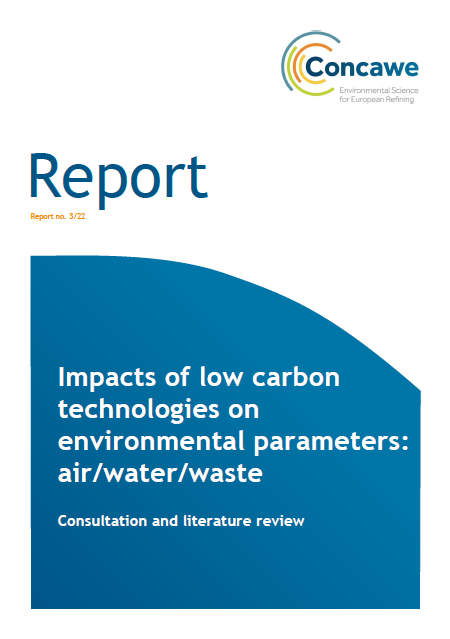
Reports
Impacts of low carbon technologies on environmental parameters: air/water/waste
Report no. 3/22: Concawe’s Low Carbon Pathways (LCP) programme aims to identify opportunities and challenges for different low-carbon technologies and feedstocks to achieve a significant reduction o...
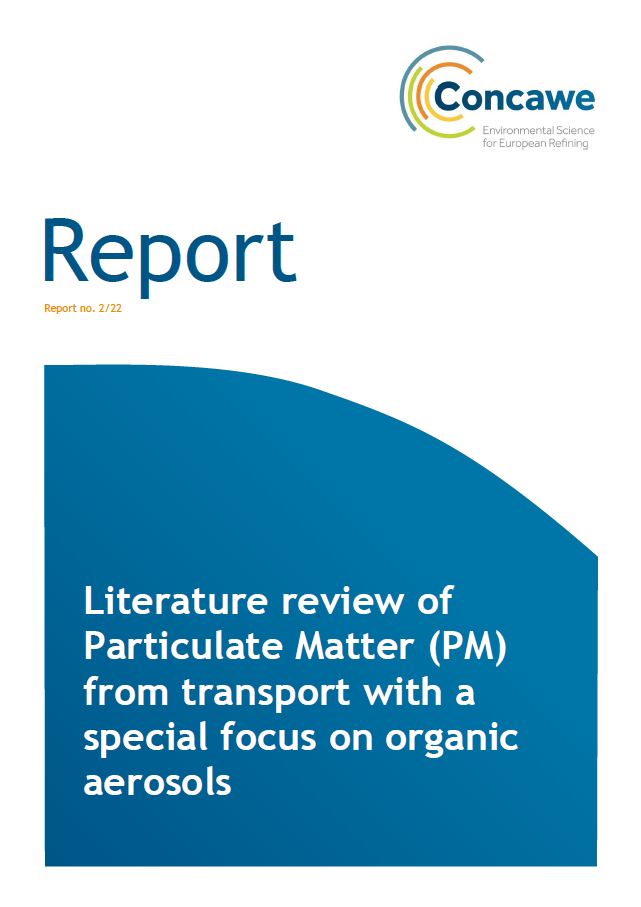
Reports
Literature review of Particulate Matter (PM) from transport with a special focus on organic aerosols
Report no. 2/22: Several recent scientific studies on urban air quality have suggested that air quality modelling based on current emission inventories for mobile sources systematically underestimates...
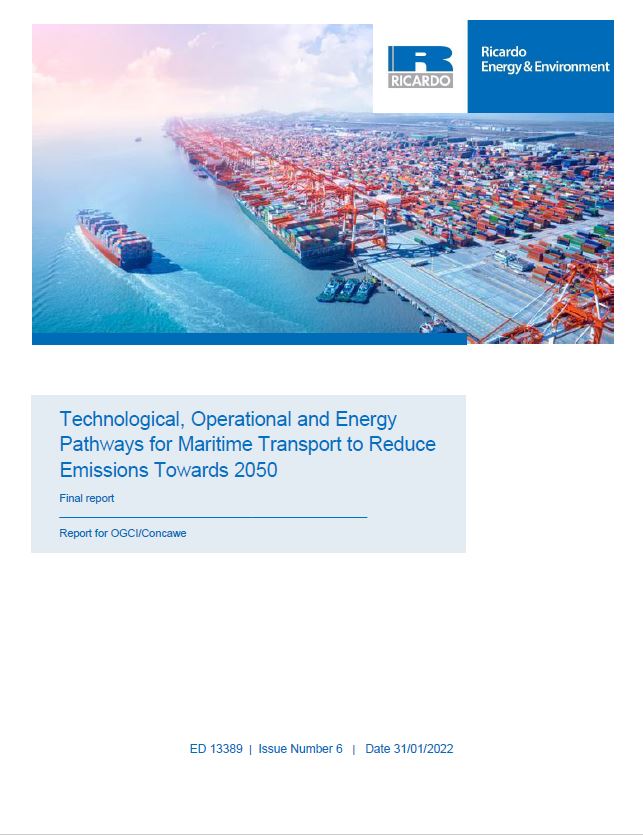
Reports
Technological, Operational and Energy Pathways for Maritime Transport to Reduce Emissions Towards 2050
This is the final report from a study for OGCI and Concawe on the “Technological, Operational and Energy Pathways for Maritime Transport to Reduce Emissions Towards 2050”. The context for this stu...
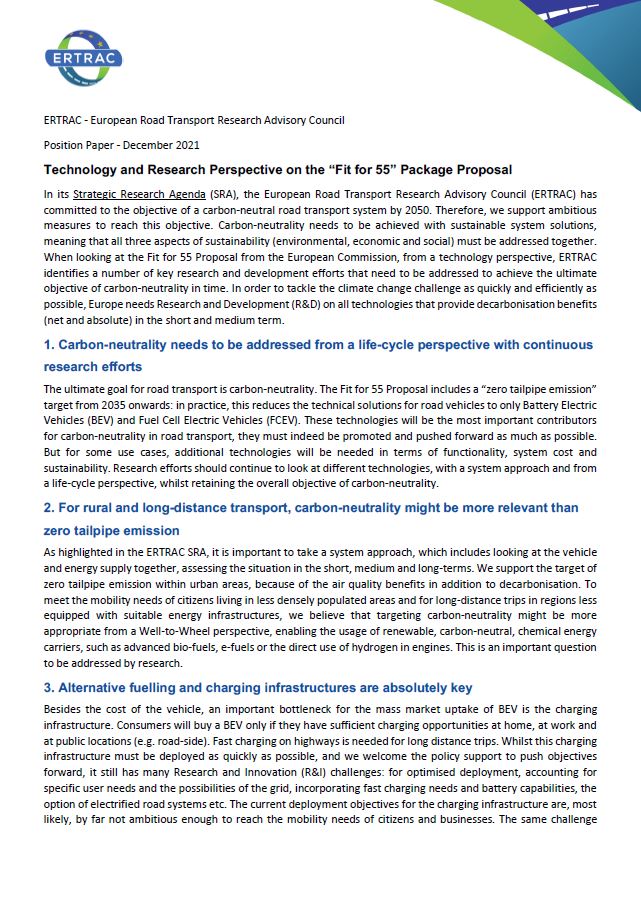
Reports
ERTRAC – Technology and Research Perspective on the “Fit for 55” Package Proposal
In its Strategic Research Agenda (SRA), the European Road Transport Research Advisory Council (ERTRAC) has committed to the objective of a carbon-neutral road transport system by 2050. Therefore, we s...
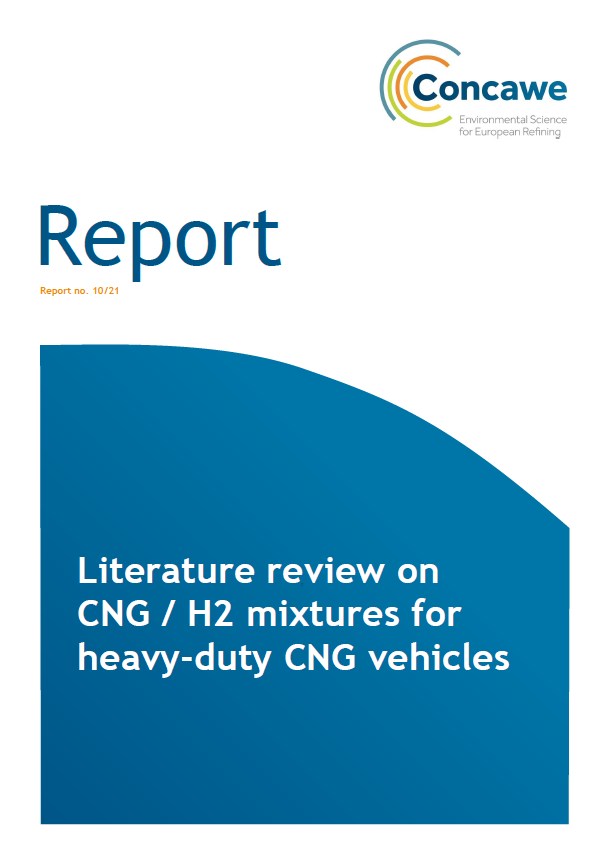
Reports
Literature review on CNG / H2 mixtures for heavy-duty CNG vehicles
Report no. 10/21: Sustainably produced hydrogen (H2) is seen as a low carbon fuel for transportation. Likewise compressed natural gas (CNG) could reduce CO2 emissions from vehicles, especially if it i...
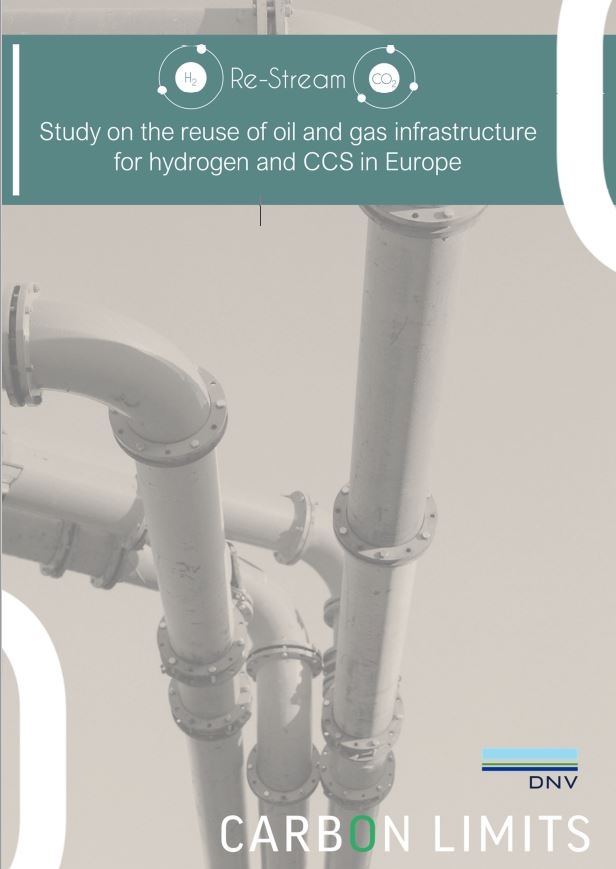
Reports
Re-Stream: Study on the reuse of oil and gas infrastructure for hydrogen and CCS in Europe
In the European Green Deal, the EU has set itself the ambitious target of achieving climate neutrality by 2050, with an intermediate target of reducing net greenhouse gas emissions by at least 55% by...
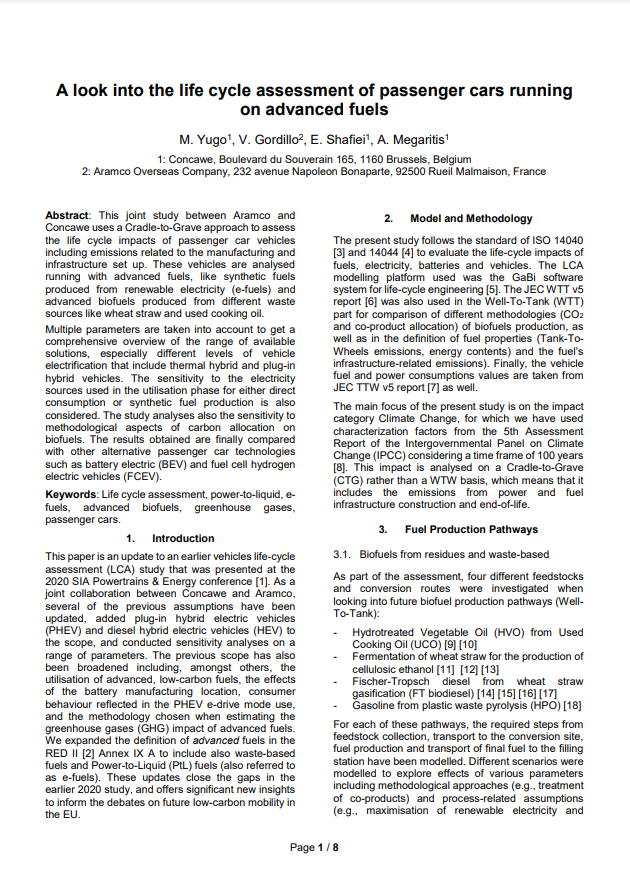
Reports
LCA of low carbon fuels passenger cars (SIA paper)
This joint study between Aramco and Concawe uses a Cradle-to-Grave approach to assess the life cycle impacts of passenger car vehicles including emissions related to the manufacturing and infrastructu...
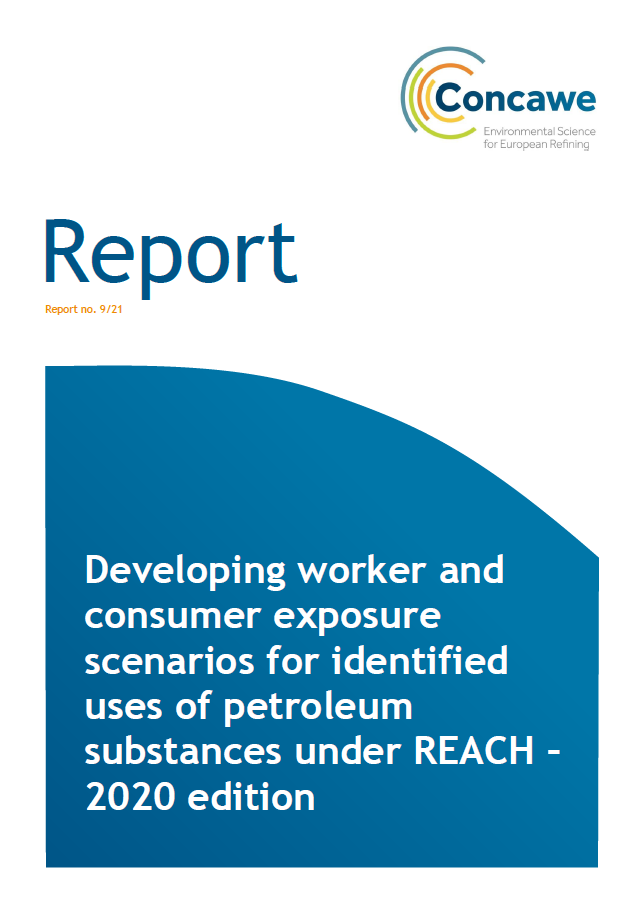
Reports
Developing worker and consumer exposure scenarios for identified uses of petroleum substances under REACH – 2020 edition
Report no. 9/21: This report sets out the approaches that Concawe has adopted in developing worker and consumer Exposure Scenarios for identified uses of petroleum substances under REACH. Exposure Sce...
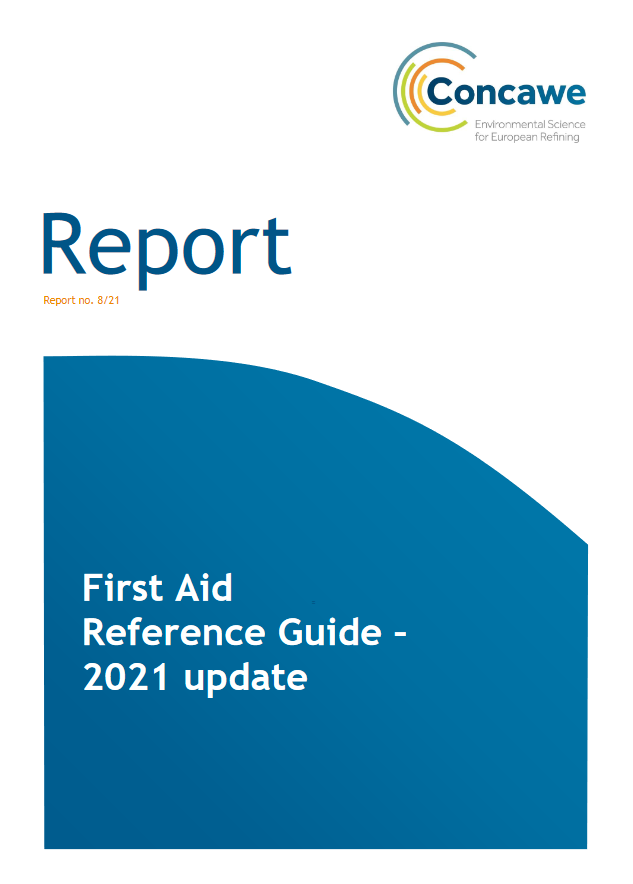
Reports
First Aid Reference Guide – 2021 update
Report no. 8/21: The “First Aid Reference Guide – 2021 update” is designed to provide additional information on the first aid measures in the event of significant on-site exposures to petroleum...
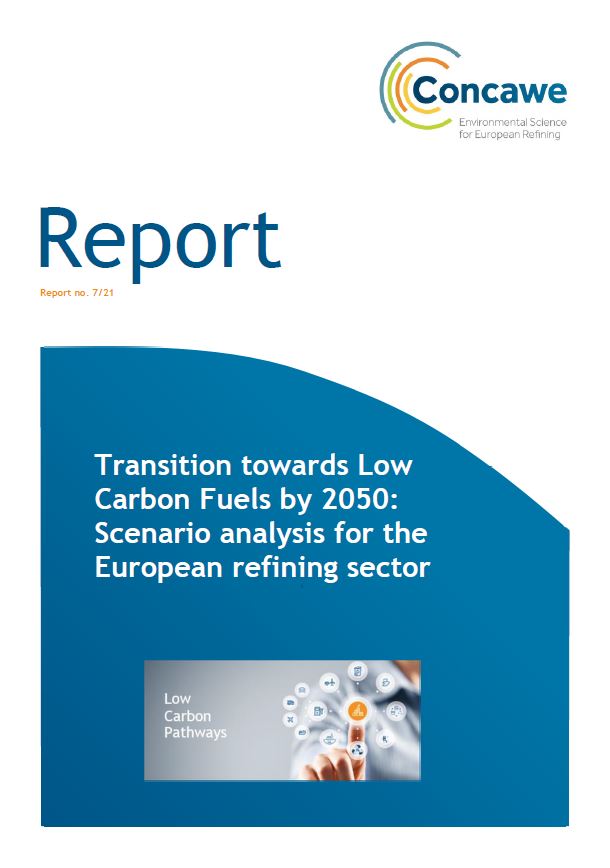
Reports
Transition towards Low Carbon Fuels by 2050: Scenario analysis for the European refining sector
Report no. 7/21: This report is a theoretical assessment of different potential trajectories (scenarios) for the EU refining industry to contribute to EU climate targets. With a wide focus on road, av...
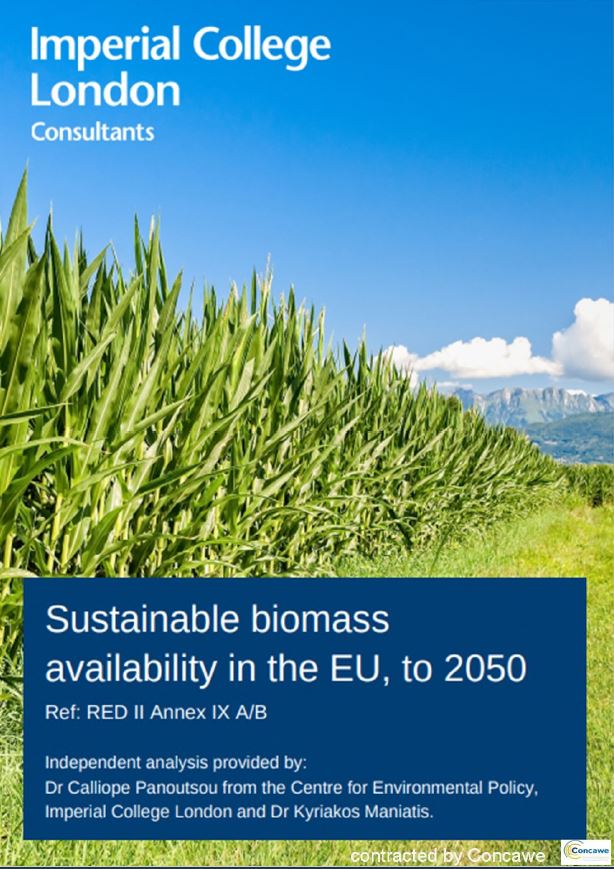
Reports
Sustainable biomass availability in the EU, to 2050
The aim of this report is to provide an estimation of the sustainable biomass potential availability in the European Union and the UK by 2030 and 2050 and to provide an evaluation of the advanced biof...
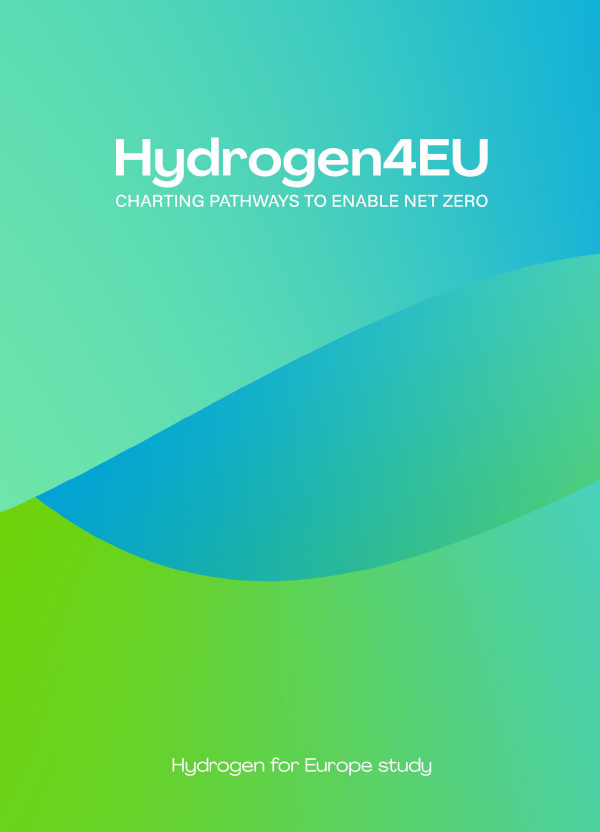
Reports
Hydrogen4EU Report
The European Green Deal, published in December 2019 by the European Commission, strengthened the previously announced objectives in terms of sustainability, renewable energy deployment and reduction o...
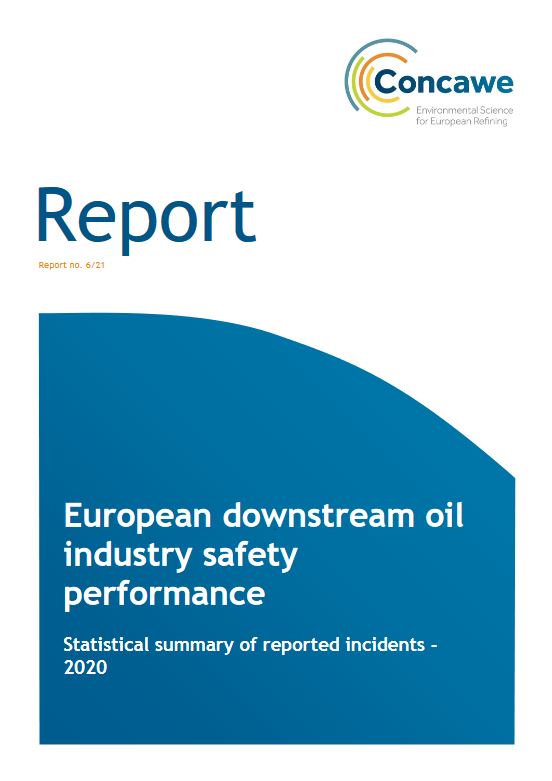
Reports
European downstream oil industry safety performance
Report no. 6/21: The 2020 annual report on European downstream oil industry safety performance presents work-related personal injuries for the industry’s own employees and contractors and process sa...
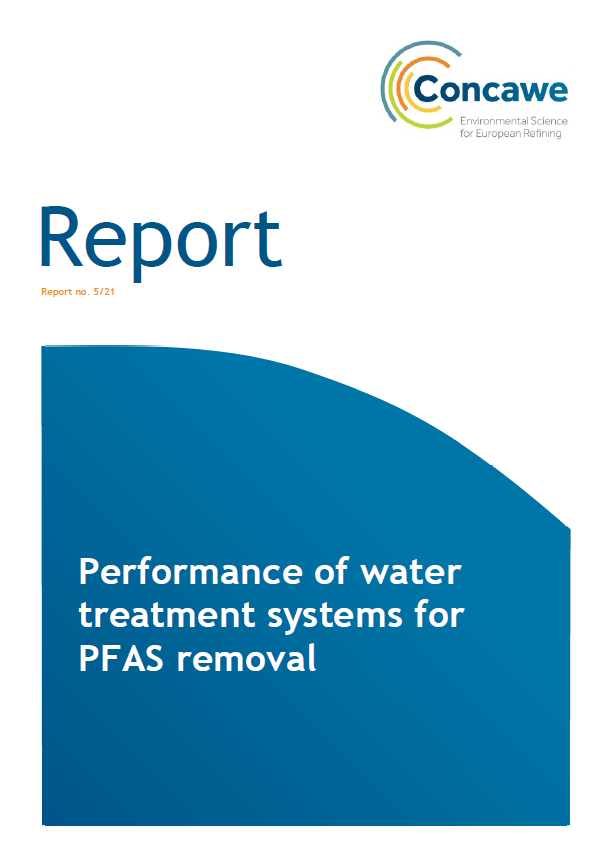
Reports
Performance of water treatment systems for PFAS removal
Report no. 5/21: Per- and polyfluoroalkyl substances (PFAS) are a group of widely used man-made organic chemical substances. They contain alkyl groups on which all or many of the hydrogen atoms have b...
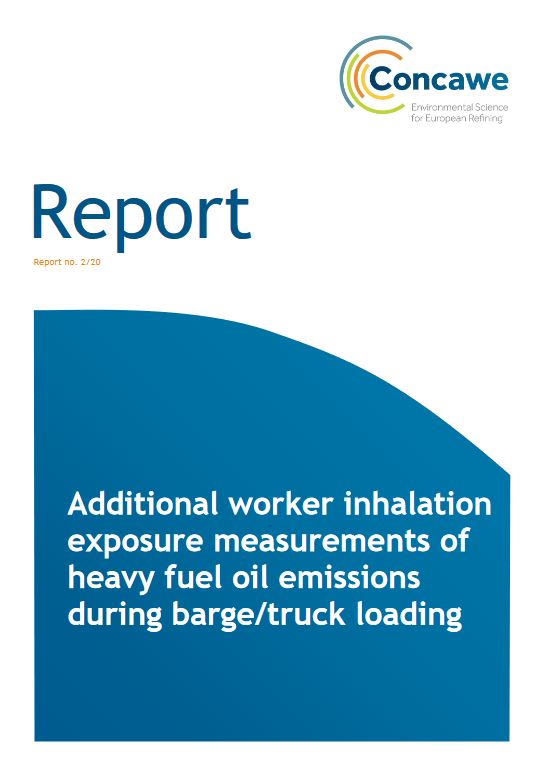
Reports
Additional worker inhalation exposure measurements of heavy fuel oil emissions during barge/truck loading
Report no. 2/20: The report details the outcome of a follow-up project of a study initiated by Concawe in 2013, investigating the occupational exposure to emissions from hot Heavy Fuel Oil (HFO) (inha...
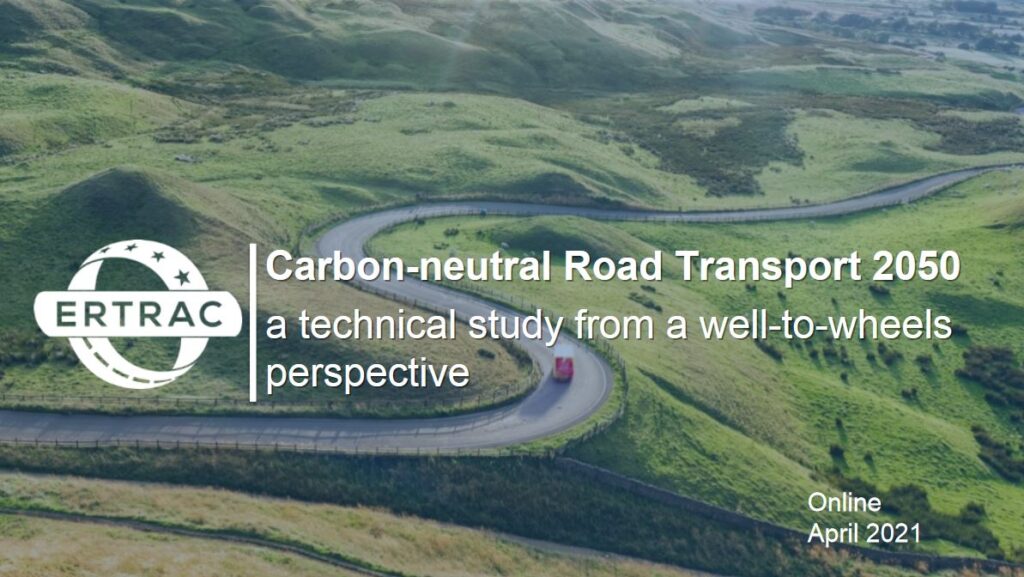
Reports
ERTRAC Carbon-neutral Road Transport 2050 – a technical study from a well-to-wheels perspective
The ERTRAC Carbon neutrality Study 2050 (WTW) analyses different “extreme” scenarios and compares effects. It does not aim at giving a projection or at describing the way to achieve a carbon neutr...
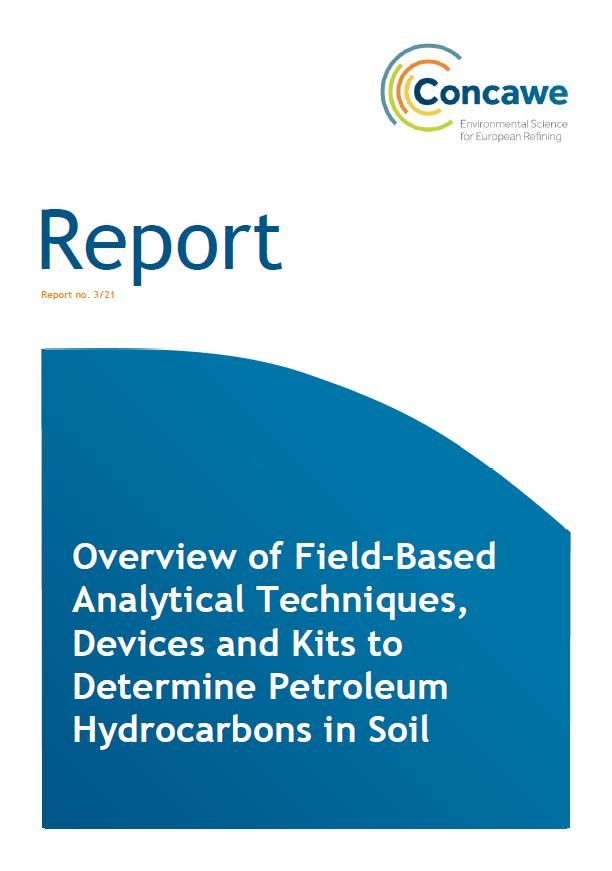
Reports
Overview of Field-Based Analytical Techniques, Devices and Kits to Determine Petroleum Hydrocarbons in Soil
Report no. 3/21: Determination of petroleum hydrocarbons in soil has long been an area of active investigation and still attracting interest as there are important and complex environmental contaminan...
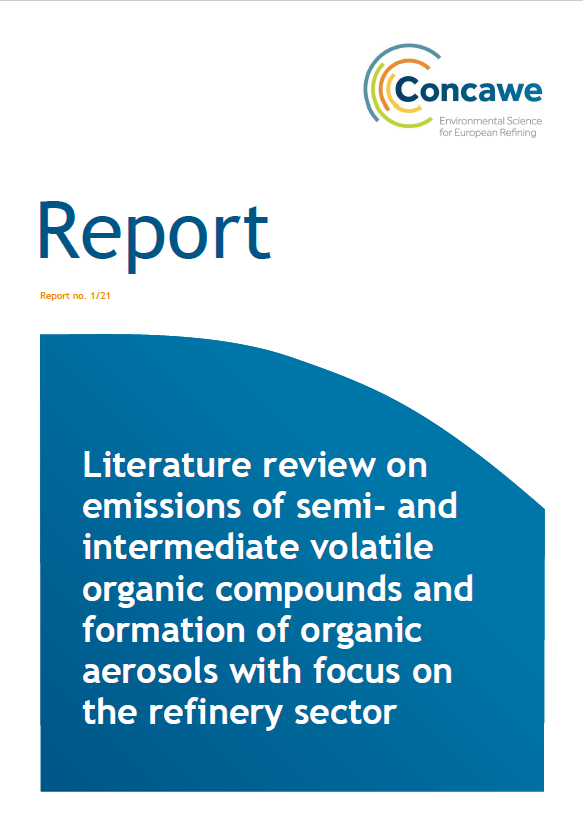
Reports
Literature review on emissions of semi- and intermediate volatile organic compounds and formation of organic aerosols with focus on the refinery sector
Report no. 1/21: Organic aerosols (OA) are an important component of ambient particulate matter (PM) but their origin and formation is not well understood. Traditionally, OA have been described by two...

Reports
Results of a comparative pilot field test study of a first generation Quantitative Optical Gas Imaging (QOGI) system
Report no. 23/20: Quantitative optical gas imaging (QOGI) is a new system to detect fugitive emission sources and quantify their mass release rates. This report presents an evaluation of QOGI technolo...
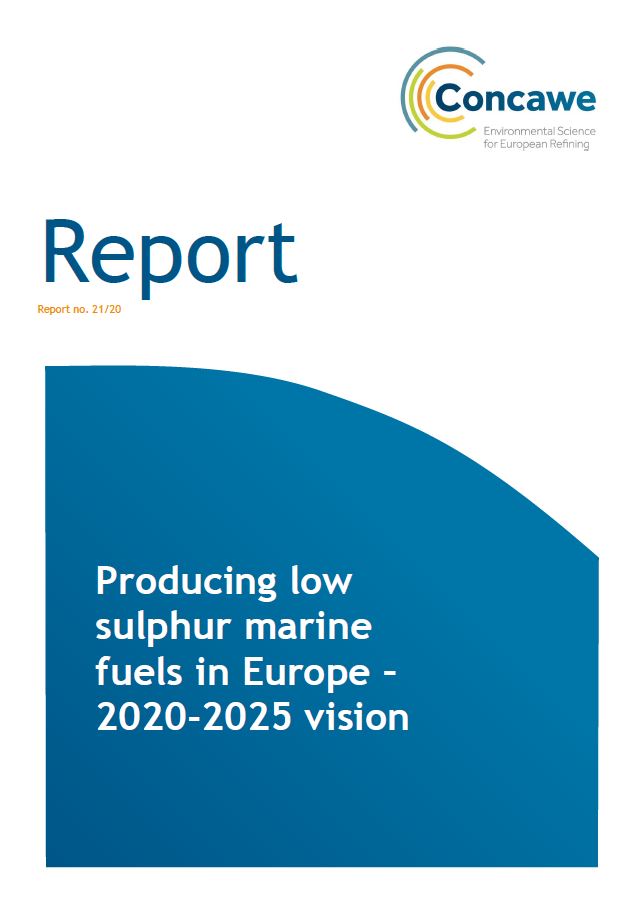
Reports
Producing low sulphur marine fuels in Europe – 2020-2025 vision
Report no. 21/20: The global Sulphur cap entered into force from the 1st of January 2020, and it is seen by the refinery sector as an unprecedented step evolution for a key specification of one of the...
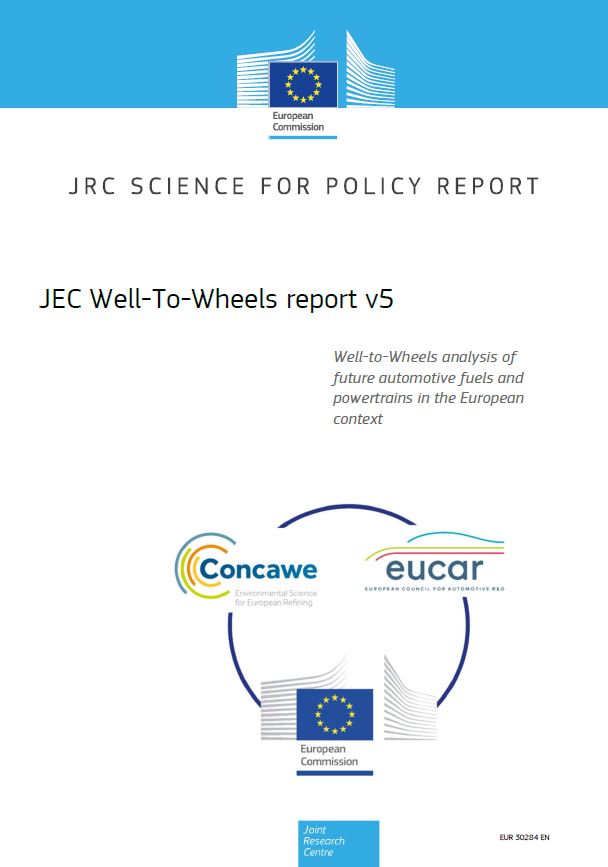
Reports
JEC Well-To-Wheels v5 related reports (including JEC WTT, TTW & WTW v5)
JRC (the Joint Research Centre of the European Commission), EUCAR and Concawe have updated their joint evaluation of the Well-to-Wheels energy use and greenhouse gas (GHG) emissions for a wide range o...